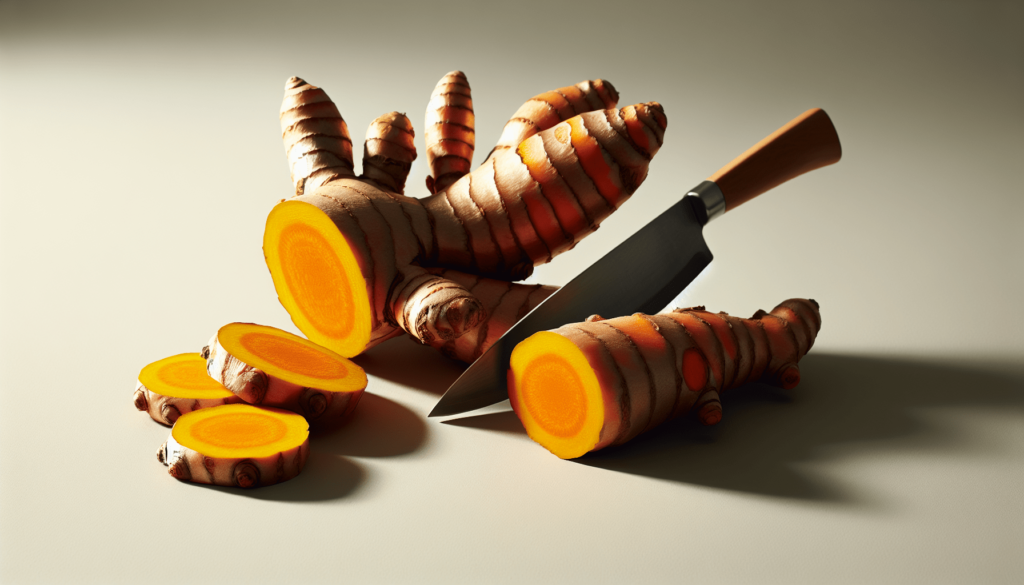Have you ever woken up and felt like the Michelin Man because you’re so bloated and inflamed? Or wondered if your knees are auditioning for the creaky door sound effect in a horror movie? If you’ve ever experienced these delightful sensations, you’re not alone. And before you start blaming your very American cheese-loaded diet, let’s chat about inflammation and how you might be able to tell it to take a hike.
You, Inflammation, and the Grumpy Godzilla Connection
Inflammation is like that cranky giant lizard terrorizing Tokyo; it’s big, bad, and frankly a bit annoying. When your body detects an invader—like an infection, injury, or even stress—it releases the hounds (aka white blood cells) to defend you. This reaction can be super helpful. You get all swollen and puffy because your body is essentially in full-on defense mode. Think of it as your internal alarm system. But just like the car alarm that’s ignored after a few minutes, chronic inflammation is not doing anyone any favors.
While acute inflammation can help you recover from colds and minor injuries, chronic inflammation is like that one irritating guest who overstays their welcome, hogs the snacks, and refuses to leave. It’s linked to a smorgasbord of diseases like heart disease, diabetes, and, surprisingly, even some mental health disorders. So, you know, it’s kind of a big deal.
Food: Your Weapon of Choice
Luckily, you don’t have to sit back and let inflammation win. Instead of waving a red flag, why not unleash your inner nutrition ninja? Your diet can be incredibly powerful in managing inflammation. The right foods can turn your body into a fortress of solitude, while the wrong ones are basically sending out party invites to every inflammatory cell in the vicinity.
The Anti-Inflammatory Superstars
Certain foods are like the Justice League of anti-inflammation. They’re packed with antioxidants and other goodies that can help combat chronic inflammation. Here’s the lineup of what should frequently grace your plate:
-
Fruits and Berries
- Blueberries: Tiny but mighty, these little gems are rich in antioxidants.
- Oranges: Great source of vitamin C which can act like teardown crew for inflammation’s party.
-
Vegetables
- Leafy Greens: Spinach, kale, and swiss chard are like tiny, edible fire extinguishers.
- Broccoli: This veggie is a real trooper, if you can get past its somewhat suspect flavor.
-
Nuts and Seeds
- Walnuts: Nature’s answer to Omega-3 doses.
- Chia Seeds: These tiny warriors are power-packed with fiber and nutrients.
-
Fatty Fish
- Salmon: Omega-3 fatty acids galore.
- Sardines: Don’t knock them till you try them—unless you’re only into food that looks like it starred in its own movie.
-
Whole Grains
- Brown Rice: A wholesome alternative to its mischievous, inflammatory white cousin.
- Oats: Not just for breakfast, they make a strong anti-inflammatory case.
-
Spices
- Turmeric: Think of this as your dietary Harry Potter—it’s nothing short of magical.
- Ginger: This spice is like a delightful party favor that keeps the inflammation at bay.
Foods That Should Come with a Health Warning
You probably already know where this one is going. Yes, those scrumptious delicacies that make life oh-so-worth-living can also be inflammation’s BFFs. Here’s the culprits that should probably be on your “Not Today, Satan” list:
-
Sugary and Processed Foods
- Soda: Liquid inflammation.
- Candy: Pure sugar, and not of the sweet, charming variety.
-
Refined Carbs
- White Bread: Might as well grab a loaf and use it as a pillow for all the good it’s doing your body.
- Pastries: Who doesn’t love them? But they’re sneaky agents of inflammation.
-
Fried Foods
- French Fries: Dipped in oil and served with a side of inflamed joints.
- Fried Chicken: Your stomach’s frenemy.
-
Trans Fats
- Margarine: Not as innocuous as it seems.
- Fast Food: Enough trans fats to get a dedicated chapter in Inflammation 101.
-
Alcohol
- Beer: Good for pub chats, not so good for inflammation.
- Cocktails: Sugar and alcohol, a double whammy.

A Day in the Life: Anti-Inflammatory Style
So, you might be thinking, “A diet to reduce inflammation sounds good in theory, but how does that play out day-to-day?” Allow me to paint you a culinary picture.
Breakfast
- Overnight Oats: Mixed with blueberries and a sprinkle of chia seeds.
- Green Smoothie: Throw in a handful of spinach, half a banana, some almond milk, and a dash of turmeric. Sure, it might look like pond water, but your body will thank you.
Mid-Morning Snack
- Nuts: Grab a handful of walnuts. Pretend it’s part of a really weird, health-driven Easter Egg hunt.
Lunch
- Salmon Salad: Include leafy greens, cherry tomatoes, cucumbers, and some light olive oil dressing. Resist the urge to drown it in creamy dressing, even though it’s tempting.
Afternoon Snack
- Apple with Almond Butter: Because getting sticky fingers is fun, right?
Dinner
- Grilled Chicken with Quinoa and Broccoli: Season the chicken with turmeric and ginger for that extra anti-inflammatory kick. Trust me, it tastes less weird than it sounds.
Dessert
- Wait, dessert? You thought you wouldn’t get dessert? Rude.
- Dark Chocolate: Yes, you heard me right. Please get the kind that’s at least 70% cocoa and doesn’t taste like sweetened dirt.
Beyond the Plate: Lifestyle Tips
A balanced diet is your starting block, but keeping inflammation in check is a marathon, not a sprint. (Did you feel that shiver? Sorry for the exercise metaphor). Here are a few non-food pointers to keep in mind:
Exercise
Regular, moderate exercise can help reduce inflammation. Think of it as your body’s way of showing inflammation the door. And no, chasing after the ice cream truck doesn’t count.
Sleep
Ah, sleep. Nature’s way of recharging your “Don’t kill anyone today” batteries. Aim for quality sleep, because insomnia can trigger inflammation. Research indicates that people who sleep poorly are more likely to suffer from chronic conditions—like inflammation throwing its own late-night rave.
Stress Management
Easier said than done, right? But finding ways to manage stress through mindfulness, yoga, or even a good laugh with friends can cut down inflammation. Spoiler: Watching cat videos can qualify as stress management.
Avoid Smoking
I don’t need to tell you this, but smoking is terrible for you. Not only does it make you smell like a walking ashtray, but it also further fuels inflammation. If you needed another reason to quit, here it is.

To Supplement or Not to Supplement?
Before you start popping anti-inflammatory supplements like they’re M&Ms, consider that a well-balanced diet should cover most of your needs. However, life isn’t always perfect, and neither is diet. Here are a few supplements that might come in handy:
| Supplement | Why You Need It | Where to Get It |
|---|---|---|
| Omega-3s | Reduces inflammation | Fish oil pills, flaxseed |
| Vitamin D | Benefits immune function, lowers inflammation | Sunlight (15 minutes a day), supplements |
| Curcumin (from turmeric) | Antioxidant properties | Turmeric capsules |
| Probiotics | Helps gut health, reducing inflammation | Probiotic yogurt, supplements |
Always consult your doctor before starting any new supplement regimen. You don’t want to go from perfectly balanced to the supplement equivalent of Pac-Man chasing ghosties.
Common Myths and Misconceptions
Let’s debunk some nonsense floating around the interwebs.
“Only Old People Have Inflammation”
Wrong! Inflammation doesn’t check your ID at the door. It can affect you at any age, especially with our love for fast food and sedentary lifestyles.
“Skipping Meals Helps Reduce Inflammation”
Dear Internet, stop spreading lies. Skipping meals can mess with your metabolism and actually worsen inflammation. Eating regular, balanced meals is key.
“All Fats Are Bad”
Not at all. It’s the trans fats you need to avoid. Healthy fats like those found in avocados, olive oil, and fatty fish are actually good for you.
“Drinking Wine Daily is Anti-Inflammatory”
Sorry vino lovers, but moderation is key. While a glass of red wine has some benefits due to its antioxidant properties, turning into a nightly wine goblin can spike your inflammation levels.
The Final Word
Inflammation may be the body’s natural alarm system, but chronic inflammation is like that annoying alarm that just won’t shut off. Balancing your diet to include anti-inflammatory foods while avoiding the inflammatory culprits can make a significant impact on your health and well-being.
So the next time you find yourself face-to-face with a slice of deep-fried-anything or a sugar-loaded dessert, remind yourself that the long-term consequences might not be worth the momentary glory. Aim for balance, variety, and maybe the occasional piece of dark chocolate. Just remember, your diet is a tool to help you, not torture you.
After all, reducing inflammation is not just about cutting out stuff; it’s about indulging in the right things. And who doesn’t want an excuse to eat more blueberries and dark chocolate?
Okay, time for your knees to stop auditioning for horror flick sound effects. Now that you’ve got the know-how, go forth and eat like the anti-inflammatory warrior you were born to be. Cheers to puff-free mornings and creak-free joints!
